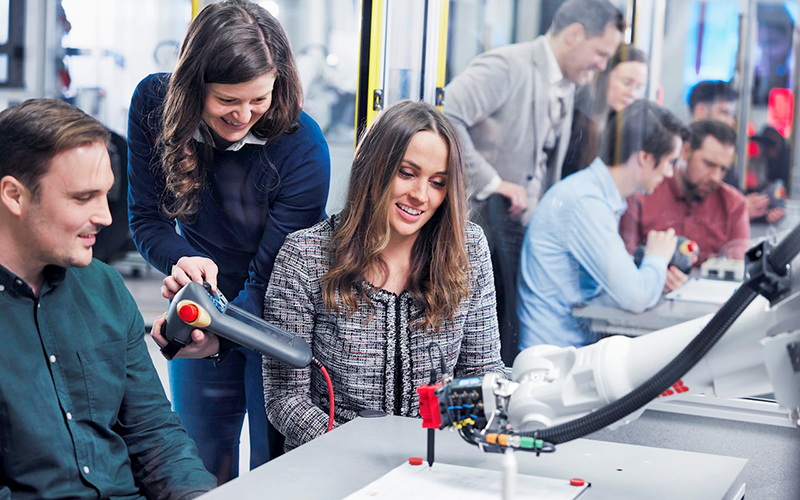A global ABB survey has revealed a growing trend in US and European businesses towards re-shoring or nearshoring operations to build resilience in the face of global challenges – but at the same time, a significant education gap in the skills necessary for these strategies to succeed.
ABB’s 2022 survey of US and European business leaders revealed that 74% of European and 70% of US businesses are planning to re- or nearshore operations to build their supply chain resilience in response to labour shortages, the need for a more sustainable global footprint and global uncertainty.
The majority of these businesses view automation as the enabler of these shifts, with 75% of European and 65% of US businesses surveyed planning to invest in robotics and automation in the next three years to facilitate this shift in operations.
Despite this appetite for automation, ABB’s 2022 global education survey found a significant gap in the education and training needed to ensure the skills necessary for work in the increasingly connected and automated workplaces of the future. Of the global education professionals surveyed, 80% believe robotics and automation will shape the future of employment in the next ten years, while only one in four education institutions currently use robots as part of their teaching programs.
To help bridge the skills gap, ABB has bolstered its global Robotics and Automation education program with new training centers, including its EUR 100m global innovation and training campus in Austria. The new site, along with other new regional training centres in the UK, Berlin and Brazil expands ABB’s training facilities to over 40 sites globally, educating more than 30,000 students from schools, colleges and universities, as well as apprentices and workers each year.
The sites add to ABB’s existing educational offering, which consists of software packages, including ABB’s Wizard Easy programming, RobotStudio and RobotStudio AR Viewer App, as well as hardware in the form of collaborative robot cells and application packages. Through more than 100 global partnerships with schools and universities, ABB generates curriculum materials with education providers to help educate future generations and prepare them the jobs of tomorrow.
ABB’s survey highlights the critical need to promote the teaching of robotics and automation skills. For more information, including ABB’s offering for education, examples of educational projects involving ABB and its robots and software, and a white paper explaining how teaching automation can help shape tomorrow’s workforce, visit the ABB education portal page.




